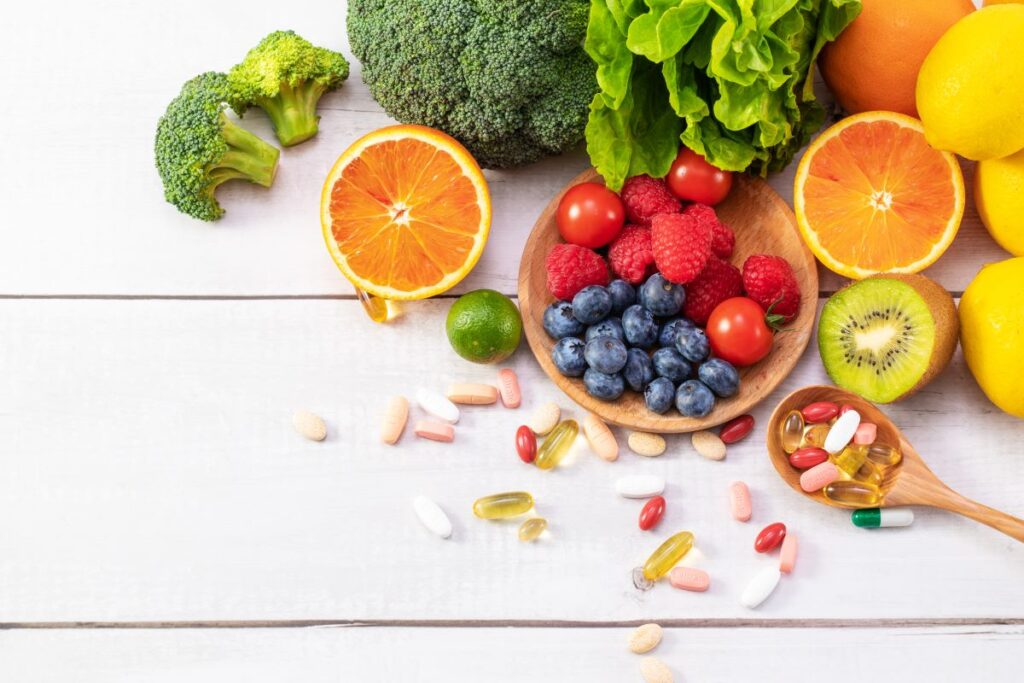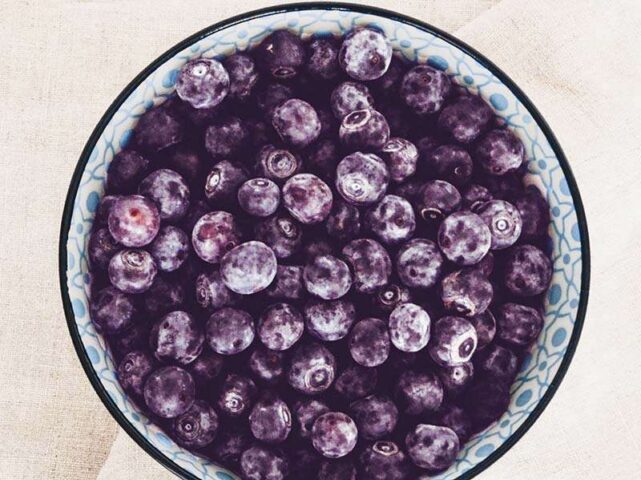Natural Supplements for ADHD: Exploring Alternative Treatments

By Reva Schlanger MS, RD, CDN
Attention-Deficit/Hyperactivity Disorder (ADHD) is a common and impairing health condition often affecting school-aged children. Pharmacotherapies are currently considered the foundation of evidence-based treatment for ADHD. Over 70% of children with ADHD respond to psychostimulant medications.1 However, many families elect not to use traditional pharmacotherapies to treat ADHD. This decision is often related to concerns over possible short-term side effects (like appetite suppressant) or doubts regarding long-term efficacy. Instead, alternative, and complementary treatments such as natural supplements are often used by families to treat ADHD.
While there is not a lot of evidence-based research on this subject compared to conventional treatment for ADHD, complementary and alternative treatments are commonly used by children with ADHD. Current evidence suggests that 12–64% of children with ADHD use some form of complementary medicine.2 Examination of adolescent dietary supplement use in the National Health and Nutrition Examination Survey (NHANES), a series of nationally representative surveys of the civilian, non-institutionalized population in the United States administered by the National Center for Health Statistics, suggested that adolescents with ADHD were roughly 10% more likely to use dietary supplements than adolescents without ADHD.3
Below, we will discuss 6 supplements that may be used to help mitigate some of the symptoms that come with ADHD. It is important to remember that not every child is unique and responds to different medications and supplements differently. Consult with your physician or dietitian to ensure your child is provided with safe and effective options.
-
Saffron
Common medications for ADHD have an appetite-suppressing affect. Additionally, about 30% of patients do not respond well to stimulants or cannot tolerate their side effects. Alternative options, such as herbal medicine, should be considered and there is increased research in the use of saffron in improving ADHD symptoms. Saffron is a fragrant spice that gives foods a yellow hue. One study showed that short term use of a saffron capsule showed the same efficacy as methylphenidate.1 Larger and longer term studies need to be done, but there is hopeful research that saffron can be effective for ADHD without the appetite-suppressing affect of other medication.
2. Omega 3 Fatty Acids
Usually given in the form of fish oil, omega-3s are probably the best-researched supplement for ADHD. Numerous studies, including two meta-analyses, have found benefit with regards to hyperactivity, attention, and impulsivity. Despite all the studies on omega-3s, questions remain about the optimal dose and how to give it.4,5 The important omega-3 fatty acids are EPA and DHA, which are listed on most product labels. It is recommended for smaller children to have a total of 1,000 mg of EPA plus DHA (add the two together), 2,000 mg. for adolescents, and 1,500 mg for those in between. There should be 1.5 to 2 times as much EPA as DHA. Most omega-3 gummies don’t provide these higher levels, so your best option is to give your child capsules or a liquid. For children who are vegetarian, algae oil is available, but it requires large doses to get enough EPA and DHA.
3. Melatonin
Melatonin is a hormone that is naturally produced in the brain in response to darkness. It helps our bodies maintain healthy sleep-wake cycles. The ADHD brain, however, has a delay in melatonin onset. Research shows that the onset of melatonin for most adults is roughly 9:30 pm, but in adults with ADHD it happens more than an hour later. In children with ADHD, the melatonin onset is similarly late — around 10:15 pm.6
This delay in melatonin onset is also associated with sleep disturbances. It typically takes a neurotypical person up to two hours to fall asleep after melatonin onset. In adults with ADHD, it may take three hours.7 Melatonin’s delayed onset helps to explain, in part, why people with ADHD often experience sleep problems. Research shows that 25 to 50 percent of people with ADHD have a sleep disorder.8
Short-term use of melatonin supplements appears to be safe for most people and effective in inducing sleep. According to one study, children with ADHD were able to sleep longer and fall asleep faster after taking melatonin daily combined with their ADHD medication over several weeks.9 Melatonin should be prescribed in a single, night-time dose of 3–6mg (depending on child’s weight) approximately 30 minutes before bedtime.
4. Iron
Low levels of iron can cause problems to those with ADHD. Studies have shown that iron is crucial for brain function and that treating children with iron supplements can help reduce ADHD symptoms. Before giving an iron supplement to your child, it is important to measure the iron levels in your child’s blood. When doctors measure these in children, they test for hemoglobin and hematocrit — the level of iron in red blood cells. These readings are usually normal in children with ADHD. Doctors should also check the ferritin level, which measures circulating iron. This is often low, or borderline low, in kids with ADHD. One study showed that the average ferritin level in ADHD children was 22 compared with 44 in non-ADHD children.10
It may be beneficial to supplement with iron if a child has a ferritin level under 30. It is important to use a chelated iron product, which reduces the problem of constipation or stomachaches. Try to begin with 30-40 mg of elemental iron a day and have your child’s doctor measure ferritin levels again in three to six months.
5. Zinc
The mineral is not as well researched as omega-3s and iron, but there is some positive research. One study showed that taking zinc with a psychostimulant caused a nearly 40 percent reduction in the amount of the stimulant required to function at optimal levels.11 Other studies have shown benefits for ADHD symptoms in general. Zinc levels can be measured in the blood, but it is safe to give 20-25 mg of zinc daily to your child without first doing a blood test. Evidence is mixed and one may need to provide a child with a higher dosage of zinc to see a benefit. Again, speaking to your doctor first is recommended!
6. Ginkgo Biloba
This herb has been used to improve cognitive function for thousands of years. The leaves of the Ginkgo Biloba contain Terpene Trilactones, a substance that has been proven to have a protective function on the brain cells, as well as a dopamine-boosting effect. A couple of small studies have shown that it may be helpful in children with ADHD. A recent double-blind randomized study looked at adding ginkgo to a stimulant that children were already taking. Some children took ginkgo plus a stimulant, while others took a placebo and a stimulant. Those who took the ginkgo had a 35 percent better response rate in terms of improving attention. It had no effect on hyperactivity or impulsivity. When combined with ADHD drugs like Adderall, Ritalin, Vyvanse, etc. it has been helpful to ease irritability, anxiety, and frustration. It is important to note that there can be an increased risk of bleeding when taking ginkgo biloba so it may be unadvised as a first use supplement.12
Takeaway
Some studies suggest that certain nutritional supplements such as saffron, omega 3 fatty acids, melatonin, and zinc can improve ADHD symptoms. However, before trying a new alternative treatment, be sure to talk with a doctor. They can help you understand the potential benefits and risks of adding it to your child’s treatment plan. It is also helpful to ensure your child is eating a well-balanced diet. Some ADHD medications can make that difficult and it may be helpful to see a registered dietitian if there is fear of an imbalance of nutrients. Additionally, since ADHD medications block appetite, a registered dietitian is helpful in ensuring continued adequate nutrition and eating strategies for when appetite is low.
References:
- Baziar S, Aqamolaei A, Khadem E, et al. Crocus sativus L. Versus Methylphenidate in Treatment of Children with Attention-Deficit/Hyperactivity Disorder: A Randomized, Double-Blind Pilot Study. J Child Adolesc Psychopharmacol. 2019;29(3):205-212. doi:10.1089/cap.2018.0146
- Spencer T, Biederman J, Wilens T, Harding M, O’Donnell D, Griffin S. Pharmacotherapy of attention-deficit hyperactivity disorder across the life cycle.J Am Acad Child Adolesc Psychiatry. 1996 Apr;35(4):409–432.
- Chan E, Rappaport LA, Kemper KJ. Complementary and alternative therapies in childhood attention and hyperactivity problems.Journal of developmental and behavioral pediatrics: JDBP. 2003 Feb;24(1):4–8.
- Gardiner P, Buettner C, Davis RB, Phillips RS, Kemper KJ. Factors and common conditions associated with adolescent dietary supplement use: an analysis of the National Health and Nutrition Examination Survey (NHANES)BMC complementary and alternative medicine. 2008;8:9.
- Hawkey E, Nigg JT. Omega-3 Fatty Acids and ADHD: Blood Level Analysis and Meta-Analytic Extension of Supplementation Trials.Clinical Psychology Review.
- Bloch MH, Qawasmi A. Omega-3 fatty acid supplementation for the treatment of children with attention-deficit/hyperactivity disorder symptomatology: systematic review and meta-analysis.Journal of the American Academy of Child and Adolescent Psychiatry.2011 Oct;50(10):991–1000.
- Kooij, S. (2016, November 7).Are You a Night Owl? About ADHD and Late Sleep. Retrieved from: https://apsard.org/are-you-a-night-owl-about-adhd-and-late-sleep/
- Bijlenga, D. , Van Someren, E. J., Gruber, R. , Bron, T. I., Kruithof, I. F., Spanbroek, E. C. and Kooij, J. J. (2013), Body temperature, activity and melatonin profiles in adults with attention‐deficit/hyperactivity disorder and delayed sleep: a case–control study. J Sleep Res, 22: 607-616. doi:10.1111/jsr.12075.Retrieved from: https://onlinelibrary.wiley.com/doi/full/10.1111/jsr.12075
- Corkum P, Davidson F, Macpherson M. A framework for the assessment and treatment of sleep problems in children with attention-deficit/hyperactivity disorder. Pediatr Clin North Am. 2011;58:667–683.doi.org/10.1016/j.pcl.2011.03.004Retrieved from: https://www.sciencedirect.com/science/article/pii/S0031395511000204?via%3Dihub
- Mohammadi, M. R., et. al. (2012). Melatonin effects in methylphenidate treated children with attention deficit hyperactivity disorder: a randomized double blind clinical trial.Iranian Journal of Psychiatry,7(2), 87–92. Retrieved from: https://www.ncbi.nlm.nih.gov/pmc/articles/PMC3428643/
- Konofal E, Lecendreux M, Deron J, et al. Effects of iron supplementation on attention deficit hyperactivity disorder in children.Pediatric neurology.2008 Jan;38(1):20–26.
- Arnold LE, Disilvestro RA, Bozzolo D, Bozzolo H, Crowl L, Fernandez S, Ramadan Y, Thompson S, Mo X, Abdel-Rasoul M, Joseph E. Zinc for attention-deficit/hyperactivity disorder: placebo-controlled double-blind pilot trial alone and combined with amphetamine. J Child Adolesc Psychopharmacol. 2011 Feb;21(1):1-19. doi: 10.1089/cap.2010.0073. PMID: 21309695; PMCID: PMC3037197.
- Arnold LE, Hurt E, Lofthouse N. Attention-deficit/hyperactivity disorder: dietary and nutritional treatments.Child and adolescent psychiatric clinics of North America.2013 Jul;22(3):381–402.







